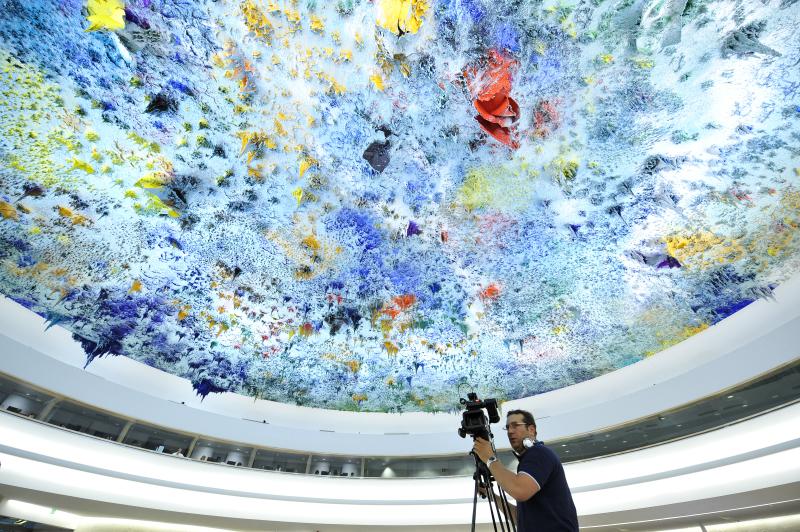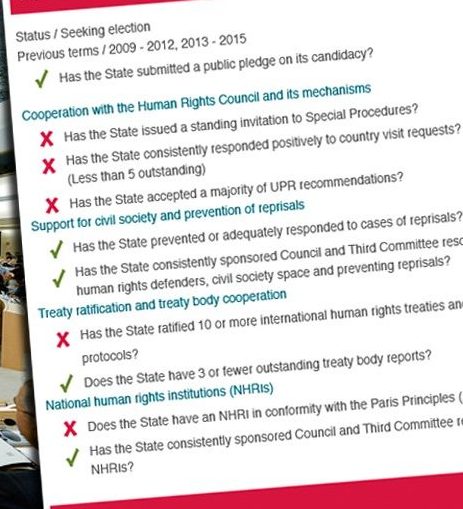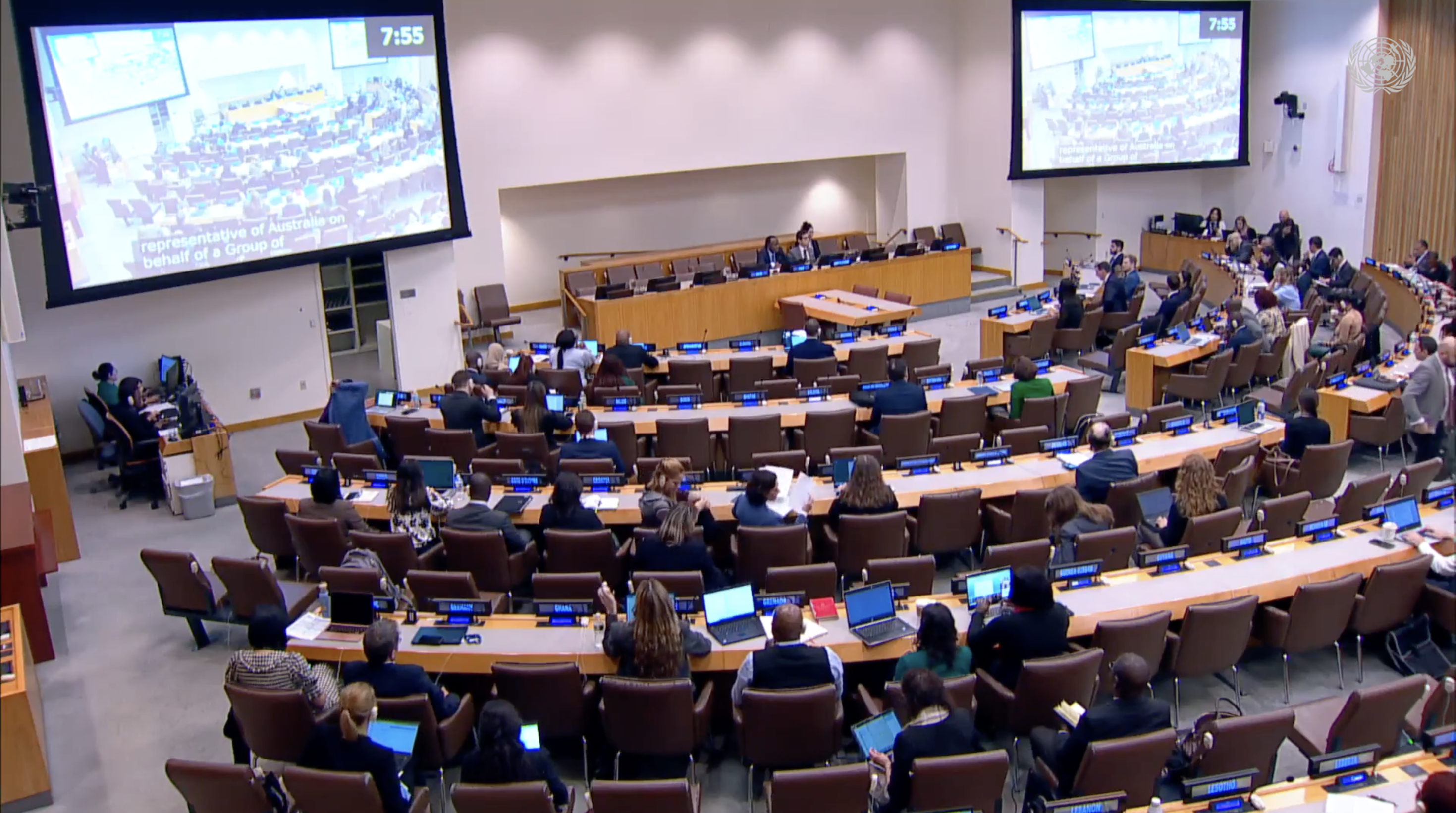To coincide with the #HRCpledging events in New York and Geneva hosted by ISHR and Amnesty International, ISHR has published a ‘scorecard’ for each State standing for election to the UN Human Rights Council.
The scorecards offer a quick ‘at-a-glance’ objective comparison of the candidates, focusing on their cooperation with the Council, their support for civil society, their engagement with UN treaty bodies and special procedures, whether they have spoken out in concern about reprisals, and whether they have established a national human rights institution.
‘If the Human Rights Council is to be the legitimate, influential body that the global human rights situation demands, it is essential that member States undertake to uphold the highest human rights standards and to cooperate fully with the Council – as required by GA resolution 60/251. It is integral that Council members comply with international standards and legal obligations,’ said ISHR’s Human Right Council Advocacy Director Michael Ineichen.
‘To ensure that human rights defenders and civil society actors can rely on the Human Rights Council to promote human rights progress on the ground, its member States must be genuinely committed to promoting universal human rights and defending those who advocate for them,’ added Ineichen.
The scorecards and #HRCpledging event are an important contribution in this regard.
While the scorecards are intended to increase scrutiny and enhance transparency in the elections, ISHR acknowledges that data limitations and the need for objectivity mean that many of the criteria are concerned with form rather than substance.
‘The fact that a State has accepted a high number of UPR recommendations, has consistently sent replies to communications received from special procedures or has no outstanding treaty body reports, says nothing about the extent to which recommendations from those mechanisms have been implemented on the ground,’ said ISHR’s Legal Counsel Tess McEvoy.
‘We enourage these ‘at-a-glance’ scorecards to be read in conjunction with the more in-depth reporting on country situations and a country’s human rights record produced by the likes of Human Rights Watch and Amnesty International,’ McEvoy said.
‘We urge voting States to treat human rights considerations as paramount in electing members to the Council, rather than engaging in vote trading or privileging political or economic considerations over fundamental human rights.’
Voting on candidates for the Human Rights Council will take place at the UN General Assembly on 20 October 2017.
Scorecards are available for:
These scorecards should be used in conjunction with other important tools, such as the world reports produced by Amnesty International and Human Rights Watch, and the election guide published by the Universal Rights Group.
Public pledges on a States’ candidacy are another valuable contribution. To date, the following candidate States have published a public pledge – Angola, Afghanistan, Australia, Chile, Malaysia, Nepal, Pakistan, Qatar and Slovakia.
Scorecards from 2016 are available here,
The sources and criteria for the scorecards are set out here and below:
|
ELEMENT
|
SOURCE
|
|
Previous terms
|
OHCHR website, List of past members of the Human Rights Council
|
|
Submitted a public pledge on its
candidacy
|
Unites Nations Documents Search
|
|
Pledged to strengthen Human Rights Council membership and adherence to membership standards
|
Signed the joint statement at the 35th session of the Human Rights Council presented by the Netherlands
|
|
Committed to applying an objective, human rights-based criteria in addressing situations of concern
|
Signed joint statement at the 32nd session of the Human Rights Council presented by Ireland, and/or the joint statement at the 35th session of the Human Rights Council presented by the Netherlands
|
| |
|
|
Issued a standing invitation to Special Procedures
|
OHCHR website, Standing Invitations
|
|
Consistently responded positively to country visit requests (Less than 5 outstanding)
|
OHCHR website, Country visits and special procedures
|
|
Sent a reply to more than 80% of communications received from Special Procedures
|
OHCHR website, Communication report and search
|
|
Accepted a high level (more than 70%)
of UPR recommendations
|
UPR Info website, Statistics of Recommendations
|
|
Case of reprisals has never been highlighted in SG reports (2011-2016)
|
OHCHR website, Acts of intimidation and reprisal for cooperation with the special procedures
|
|
Spoken out expressing concern about reprisals
|
Signed the joint statement at the 30th session of the Human Rights Council presented by the Ghana
|
|
Consistently sponsored Council and
Third Committee resolutions
on human rights defenders, civil society space and preventing reprisals
|
Sponsored more than 7 of the following resolutions: Human Rights Council resolutions 13/13, 22/6 & 31/32 (human rights defenders), 24/21 (civil society space), 24/24 (reprisals), 25/18 & 34/5 (renewal of mandate of Special Rapporteur on human rights defenders); General Assembly resolutions: 66/164, 68/181 & 70/161
|
|
Ratified 10 or more international human rights treaties and protocols
|
Ratified 10 of more of the following international human rights treaties and protocols – ICCPR, ICCPR-OP1, ICCPR-OP2; ICESCR, ICESR-OP; ICRD; CEDAW, CEDAW-OP; CRC, CRC-OP-AC, CRC-OP-SC, CRC-OP-IC; ICMW; CPED; CPRD, CRPD-OP; CAT, OP-CAT
OHCHR website, Ratification status
|
|
Has 3 of fewer outstanding treaty body reports
|
OHCHR website, Reporting Status |
|
Has an NHRI in conformity with the
Paris Principles (A-status)
|
GANHRI, Status of National Institutions
|
|
Sponsored both the Council and
Third Committee resolutions on NHRIs
|
Sponsored both Human Rights Council resolution 27/18 and General Assembly resolution 70/163
|




